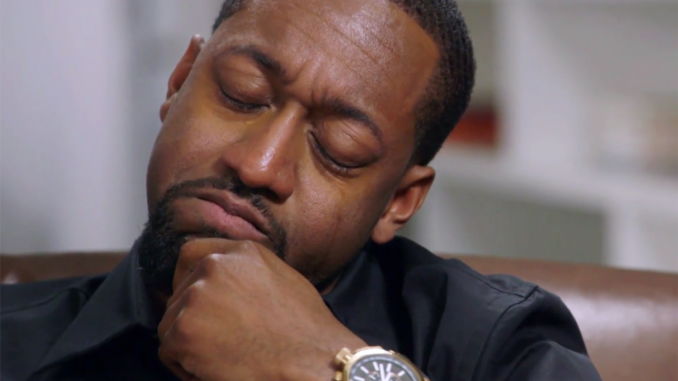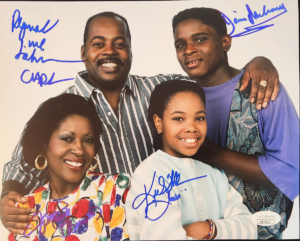
Jaleel White, famous for his role as Steve Urkel on Family Matters, has sparked significant controversy with recent comments about the portrayal of Black characters in television. While reminiscing about his time on Family Matters, White made remarks about “Black hood shows” that have raised eyebrows, leading to backlash from fans and critics alike.
In his comments, White seemed to downplay or dismiss the value of television shows that focus on Black urban experiences, a genre that has grown in prominence over the years. These remarks were interpreted by many as a direct criticism of shows that highlight life in Black neighborhoods and the issues that come with it. The backlash was swift, with people questioning whether White, as a Black actor, should be so dismissive of shows that portray such a significant part of the African American experience.
In this article, we will delve into what Jaleel White said, the reasons why his comments were seen as problematic, and the reactions from fans and critics who feel his stance undermines important cultural narratives.
Jaleel White’s Comments: What Did He Say About ‘Black Hood Shows’?
During an interview, Jaleel White was asked about his thoughts on the portrayal of Black characters on television, specifically in shows that are centered around Black life in urban, often working-class environments. In response, White expressed dissatisfaction with these types of shows, referring to them as “Black hood shows,” implying that these portrayals were less valuable or less significant than those that reflect more middle-class Black experiences, like Family Matters.
He said, “I didn’t want to be a part of those kinds of shows where the Black experience is only depicted through stereotypes of the ‘hood.’ I wanted something more positive.” This statement sparked immediate controversy, as it was seen as dismissive of a whole genre of television that many fans view as an authentic portrayal of the struggles and triumphs of Black communities.
The Backlash: Why Did People Take Issue with His Remarks?
The backlash to White’s comments was intense, especially from those who feel that he misunderstood or undervalued the significance of these “Black hood shows.” Here’s why many were upset:
Stereotyping and Dismissing Real-Life Struggles
Many fans and critics felt that White’s comments played into the stereotype that shows focusing on Black urban life are somehow less sophisticated or meaningful than other types of shows. In his critique of “Black hood shows,” White seemed to ignore the fact that these shows often depict real-life struggles, systemic issues, and the resilience of Black communities. Shows like The Wire, Snowfall, and Power have been praised for their gritty and authentic storytelling, showing a side of Black life that is rarely highlighted in mainstream media.
By dismissing them as “hood shows,” White appeared to suggest that their portrayal of Black people in lower-income or crime-affected areas was somehow less worthy of attention or respect, which many viewers found offensive.

Reinforcing Class Divides Within the Black Community
Another criticism that arose was the implication that only certain portrayals of Black life were worthy of being called “positive.” White’s assertion that Family Matters represented a more “positive” Black experience ignored the fact that many people from Black communities can relate to the struggles and triumphs seen in shows about the “hood.” By creating a divide between “positive” and “negative” representations of Black life, White inadvertently reinforced the idea that only certain types of Black experiences are valid or worthy of being showcased on television.
Family Matters vs. “Black Hood Shows”: What Is the Real Difference?
In many ways, Family Matters stands as one of the most beloved sitcoms of the 90s, with its portrayal of the Winslow family, a middle-class Black family navigating life in Chicago. The show provided a vision of Black life that was distinctly different from shows set in more urban, economically disadvantaged areas. However, just because Family Matters didn’t focus on the struggles of inner-city life doesn’t mean that shows with those themes are any less important.
Different Stories, Same Community
While shows like Family Matters offered an aspirational view of Black family life, other shows that focus on the so-called “hood” portray struggles that are also part of the broader Black experience. These shows are often celebrated for bringing light to issues such as systemic racism, crime, poverty, and survival in underrepresented communities. Ignoring or dismissing these portrayals by labeling them as “hood” can be seen as ignoring the richness of the full spectrum of Black life in America.
Jaleel White’s Position: Does He Have a Valid Point?
Some supporters of Jaleel White’s comments argue that he simply wanted to highlight the importance of portraying a “positive” Black experience, one that focuses on achievement, family, and respectability. This perspective comes from a place of wanting to break free from the negative stereotypes that have historically been associated with Black communities in media. White, perhaps, wanted to avoid falling into the trap of perpetuating negative portrayals of Black people and instead contribute to showcasing an uplifting narrative.
The Power of Uplifting Stories
There is no doubt that shows like Family Matters have had a profound impact on Black representation, showing that Black families can be strong, loving, and successful. However, that does not mean other stories that address the realities of poverty, crime, or struggle should be discounted. Both types of storytelling are valid; each has its own role in contributing to the broader conversation about Black life in America.
Understanding the Bigger Picture
White’s desire for a more “positive” portrayal of Black life is admirable, but his words could have been better framed to avoid alienating fans of shows that explore more difficult or complex themes. A more nuanced take could have emphasized the importance of diversity in Black representation rather than pitting one type of Black experience against another.
Reactions from the Entertainment Industry and Fans
The reaction from the public has been mixed. Some have defended White, understanding that he may have been speaking from a place of wanting to uplift Black people through media. Others, however, have called him out for not recognizing the value of stories that shed light on difficult realities.
Fans Speak Out Against White’s Comments
Many fans took to social media to express their disappointment with White’s remarks. One fan tweeted, “Jaleel White’s comments about Black ‘hood shows’ are tone-deaf. We need ALL kinds of Black stories to be told, not just the ones that fit into a ‘respectable’ mold.” Another wrote, “Family Matters was great, but it’s not the only way to tell a Black story. Shows about the ‘hood’ matter too.”
Industry Reactions
Within the industry, there has been significant discussion about the need for diverse narratives that reflect the wide-ranging experiences of Black people. Shows like Insecure, Atlanta, and Lovecraft Country have been lauded for their multidimensional portrayals of Black life, highlighting everything from personal struggles to supernatural challenges. These shows provide a more diverse landscape for Black storytelling, and White’s comments were seen as an oversimplification of this complex issue.
Conclusion: A Misstep or a Call for Better Representation?
Jaleel White’s comments about “Black hood shows” have undoubtedly stirred up a lot of controversy. While his intention may have been to promote positive portrayals of Black families and communities, his words were seen by many as dismissive of other important aspects of Black life. It’s essential to recognize that both types of stories—whether focusing on family dynamics or the realities of urban struggle—are valuable and necessary for a complete picture of Black experiences.
In the end, White’s remarks highlight an ongoing conversation about how Black people are represented in the media, with a particular focus on the diversity of those representations. Hopefully, this moment can spark more thoughtful and inclusive discussions about how we value all stories, regardless of their setting.
FAQs
1. Why was Jaleel White criticized for his comments? Jaleel White was criticized because his remarks about “Black hood shows” were seen as dismissive of shows that portray the struggles of Black communities, reinforcing stereotypes and undermining the value of diverse Black storytelling.
2. What is a “Black hood show”? A “Black hood show” refers to television series that focus on the experiences of Black people living in urban, often lower-income neighborhoods, and often portray issues like crime, poverty, and systemic challenges.
3. What is the significance of shows like Family Matters? Family Matters is a beloved show that portrays a middle-class Black family, focusing on themes of love, achievement, and family dynamics, providing a positive and aspirational image of Black life.
4. What shows are considered “Black hood shows”? Examples include The Wire, Power, Snowfall, and Empire, which depict life in urban areas, often tackling themes such as crime, survival, and social injustice.
5. What is the broader issue with Jaleel White’s comments? The broader issue is that his comments seem to suggest that only certain types of Black stories are worth telling, ignoring the value of stories that represent the realities of urban life for many Black people.
